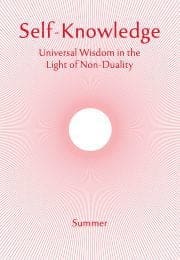Prayer and Self-Knowledge
A discourse given at a recent meeting by the Warden of Shanti Sadan
That which is unapproachable by the mind and which gives the mind the ability to think, that is to be known as Brahman, and not what people here worship as an object of the mind.
Kena Upanishad 1:6
Let us consider the question of prayer—where God is usually worshipped or prayed to as if separate from our Self—in the light of this verse from the Kena Upanishad. For prayer is a practice common to all the great religions, and it is considered by many to be essential for safe and wise living.
First, what is prayer? Put simply, prayer is a talking to God. Expressed in a more sophisticated way, prayer is a communication made by the human mind, generally through words, to a great being or presence, that is thought to be all-knowing and all-powerful, infinite and eternal. This supreme being is the power we pray to, because its knowledge includes a complete awareness of our particular situation, and not only of our thoughts, but also of our sincerity. It knows us better than we know ourselves. Prayer would be pointless without this belief in one who hears our prayers and knows our heart.
But who and where is this great being that we refer to as the Infinite, God, Allah, the Highest, or a saint or incarnation of God who for us, represents the Highest? If such a Power is aware of what is transpiring in our own mind—if it knows the motions of our thought and our sincerity—then it makes no sense to regard such a being as essentially separate from us. As Rumi says in the Masnavi: ‘Thou art an inmost ground of consciousness, witnessing our every thought.’ The great reality must somehow be present in the mind itself.
This assertion, that the divine presence we pray to, is within our own being, is in harmony with the teachings of Christ, who, on the one hand, commends prayer to ‘our father which art in heaven’, yet also declared: ‘The kingdom of heaven is within you.’ The Upanishads also teach this essential inwardness of the supreme power as the inner ruler present in everything, including the human mind.
Before we are awakened to this teaching, we may be convinced that we are reaching out to a deity that exists somewhere else. But this supreme power, in order to be conscious of our thoughts, must abide in close proximity to them, pervading our intellect, whether the mind recognises it or not. Once we can accept that there is this transcendent yet immanent awareness in our own mind, and which some writings refer to as ‘God within’, or the divine presence, we need to turn our attention to our own being and ask the questions, ‘What actually is the self? What am I? What is this consciousness in me, when truly realised? Can the essential consciousness in me really be different from the divine consciousness that is the knower of my thoughts and prayers? Can there be two consciousnesses in me: my own individualised consciousness and that consciousness through which God knows me?’
St Paul has said: ‘For now we see through a glass, darkly’—in other words, our knowledge of truth is incomplete and distorted —‘but then’—meaning when we see things as they truly are—we shall see reality ‘face-to-face’, so to say. He continues: ‘Now I know in part; then I shall know even as also I am known.’
But exactly how are we—and our thoughts and prayers— ‘known’, and by whom? There is within us a supreme principle of knowledge to which all mental processes appear. The Upanishads identify the ‘inner ruler’ as not other than the changeless conscious-ness that witnesses the passing thoughts. Not only is it the ‘knower of knowing’ as regards the individual. It is the only conscious principle in the entire range of experience—for ‘there is no other knower but this’. Identified as our true Self, Atman, it is also Brahman, the absolute. To commune with the supreme, whether in prayer or meditation, is to practise the yoga of non-separation.
The dark glass is the unpurified mind, functioning as if consciousness itself were individualised, finite and dependent on the mental faculties. But our consciousness is never really conditioned or limited in this way. And this is the great truth that dawns on the seeker when the mind has been rendered serene, free from desire, and finds pure satisfaction in Self-contemplation.
This revelation of our own consciousness as one with the all-pervading consciousness is indicated in the following text for meditation:
OM
THE DAWN OF THE CONSCIOUSNESS
OF UNIVERSAL UNITY LIGHTS MY SOUL.
HERE THERE AND EVERYWHERE IS MY SELF.
OM
The true object of our love, our worship and our prayer is close at hand, for it is not an object of our consciousness at all, but is that immediacy of consciousness itself which makes knowing possible. And therefore we return to the teaching of the Kena Upanishad, which reminds us:
That which is unapproachable by the mind and which gives the mind the ability to think, that is to be known as Brahman, and not what people here worship as an object of the mind.
B.D.


